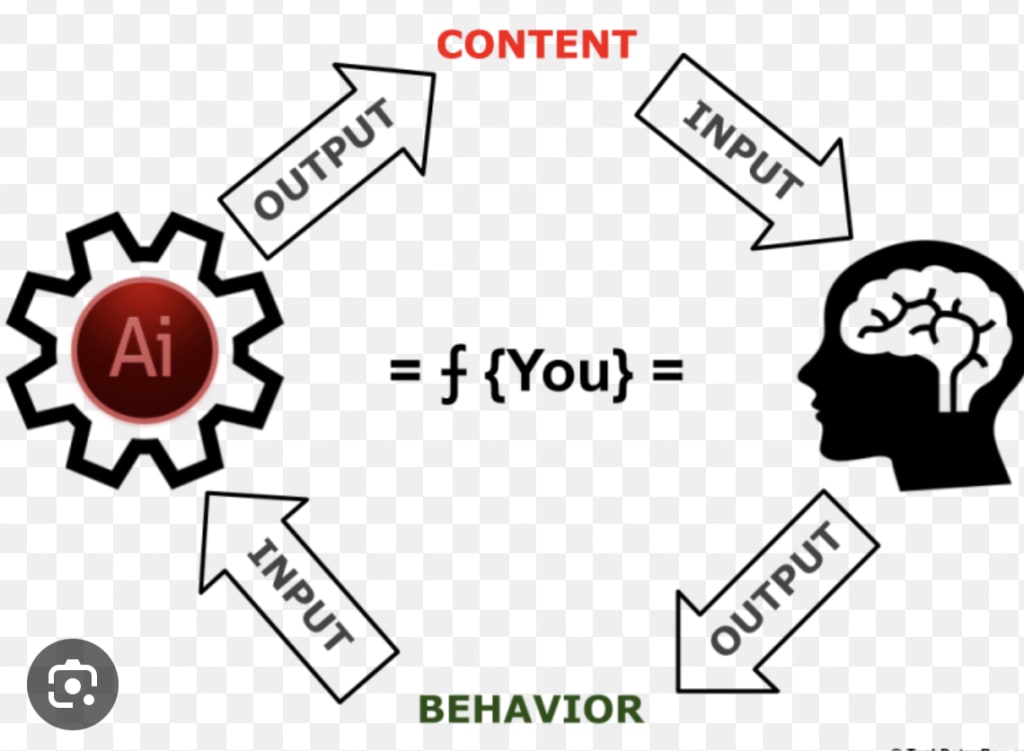AI and Human Behaviors
AI and Human Behaviors

Artificial intelligence has been revolutionizing the way we live and work, and its impact on human behavior is undeniable. But can AI actually feed human intelligence? In this essay, we will explore the ways in which AI can contribute to human intelligence and how it can help humans understand their own behaviors.
One of the ways in which AI can feed human intelligence is by providing insights into complex data. AI algorithms can analyze vast amounts of data and extract patterns and insights that humans would not be able to detect on their own. This is particularly useful in fields like healthcare, where AI can help doctors diagnose diseases more accurately and develop better treatment plans for their patients. By feeding humans this knowledge, AI can help us make more informed decisions and improve our overall understanding of the world around us.
Another way AI can feed human intelligence is through personalized recommendations. AI algorithms can learn from our past behavior and preferences and provide us with tailored recommendations that match our interests. This is evident in the way we consume content on platforms like Netflix and YouTube, where AI algorithms suggest movies and videos that we are more likely to enjoy based on our viewing history. By feeding humans recommendations that align with their interests, AI can help us discover new things and expand our knowledge.
AI can also feed human intelligence by helping us understand our own behavior. By analyzing our digital footprints, AI can provide insights into our habits, preferences, and decision-making processes. This is particularly useful in fields like marketing, where AI can help businesses understand their customers better and create more effective marketing campaigns. By feeding humans this knowledge, AI can help us become more self-aware and make better decisions in our personal and professional lives.
However, it’s important to note that AI is not a panacea for human intelligence. There are limitations to what AI can do, and it’s important that humans remain critical thinkers and not solely rely on AI for knowledge and decision-making. Additionally, there are ethical concerns surrounding the use of AI, particularly in areas like privacy and bias. It’s important that AI is developed and used in a responsible and ethical manner.
AI has the potential to feed human intelligence in numerous ways, from providing insights into complex data to helping us understand our own behavior. However, it’s important that humans remain critical thinkers and use AI as a tool to enhance their own intelligence, rather than rely on it exclusively. By doing so, we can ensure that AI is used in a responsible and ethical manner to benefit humanity. To maximize the potential of AI in feeding human intelligence, it’s important for researchers and developers to continue advancing the technology. This includes improving the accuracy of AI algorithms, developing new applications for AI, and addressing ethical concerns surrounding its use.
One area where AI can be further developed is in its ability to understand and interpret human emotions. Emotions play a significant role in human behavior, and if AI can accurately detect and interpret emotions, it can provide invaluable insights into human behavior. This could be particularly useful in fields like mental health, where AI could help diagnose and treat mental health conditions more effectively.
Another area where AI can be further developed is in its ability to learn from humans. While AI can already learn from data, it’s limited in its ability to learn from humans in real-time. However, recent advancements in human-robot interaction have shown potential for AI to learn from humans through natural language processing and other forms of interaction. If AI can learn from humans in real-time, it can provide even more personalized recommendations and insights.
Finally, it’s important for researchers and developers to address the ethical concerns surrounding the use of AI in feeding human intelligence. This includes ensuring that AI is developed and used in a way that respects privacy and human rights, and that it doesn’t reinforce bias or discrimination. It’s also important to consider the potential impact of AI on employment and to develop strategies to mitigate any negative effects.
In conclusion, AI has the potential to feed human intelligence in numerous ways, and further advancements in the technology will only increase its potential. However, it’s important to address ethical concerns and ensure that AI is developed and used in a responsible and ethical manner to maximize its benefits for humanity.





Comments
There are no comments for this story
Be the first to respond and start the conversation.